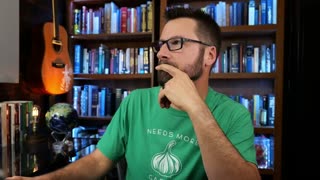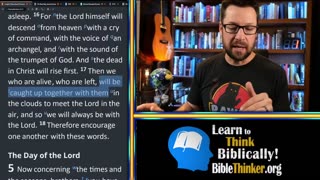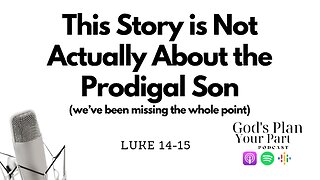Episode 1661: Here are my mother and my brother's
In John 15:13-15, Jesus calls his disciples his friends: "Greater love has no one than this, that someone lay down his life for his friends. You are my friends if you do what I command you. I no longer call you servants, because a servant does not know his master's business. Instead, I have called you friends, for everything that I learned from my Father I have made known to you."
Indirect references to friends:
John 15:13-15
"Greater love has no one than this, that someone lay down his life for his friends. You are my friends if you do what I command you. I no longer call you servants, because a servant does not know his master's business. Instead, I have called you friends, for everything that I learned from my Father I have made known to you."
Traditional Catholic Interpretation
In these verses, Jesus is teaching his disciples about the nature of true friendship and the ultimate expression of love: laying down one's life for another. He begins by declaring that there is no greater love than this, emphasizing the profound sacrifice involved in giving one's life for another.
Jesus then addresses his disciples directly, calling them his "friends." This is a significant shift in how he has referred to them previously, as he typically addressed them as "disciples" or "servants." By calling them his friends, Jesus elevates their status and emphasizes the intimacy of their relationship with him.
He further explains that he no longer calls them servants because a servant does not know his master's business. In contrast, Jesus has revealed everything he has learned from his Father to his disciples, treating them as trusted confidants and friends.
This revelation of God's plans and teachings to the disciples is a testament to the deep trust and love that Jesus has for them. It underscores the importance of their role in carrying on his mission and spreading his message to the world.
Significance for Catholics
John 15:13-15 holds profound significance for Catholics as it encapsulates the essence of Christian love and friendship. It serves as a reminder that true love is not merely about feelings or words, but about actions and sacrifices.
The passage also highlights the importance of obedience to Christ's teachings. Just as Jesus laid down his life for his friends, so too are his followers called to follow his example and live out his teachings in their daily lives.
Furthermore, the passage emphasizes the dignity and value of every individual, as Jesus calls his disciples "friends" rather than servants. This reflects the Catholic understanding of the human person as created in God's image, possessing inherent worth and dignity.
In conclusion, John 15:13-15 serves as a powerful reminder of the transformative power of love and the importance of living a life aligned with Christ's teachings. It continues to inspire and guide Catholics in their pursuit of a life of love, friendship, and service to others.
Jesus often spoke about the importance of love and loyalty, which are essential qualities of friendship. For example, in Matthew 22:37-39, he said: "You shall love the Lord your God with all your heart and with all your soul and with all your mind. This is the first and greatest commandment. And the second is like it: You shall love your neighbor as yourself."
References to family:
In Matthew 22:37-39, Jesus summarizes the entire moral law in two commandments: love of God and love of neighbor. These two commandments are interconnected and inseparable, as they both flow from the same source: God's infinite love for us.
Love of God
The first commandment, to love God with all our heart, soul, and mind, calls us to a relationship of deep intimacy and communion with God. This love is not merely an emotion or feeling, but a total commitment of our entire being to God. It involves our intellect, our will, and our emotions.
In the traditional Catholic understanding, love of God is not just a personal matter, but also a social one. When we love God, we are called to love others as God loves them, with compassion, mercy, and forgiveness. This love is not based on merit or worth, but on the inherent dignity of every human person created in God's image.
Love of Neighbor
The second commandment, to love our neighbor as ourselves, flows from the first commandment. If we truly love God, we will naturally love our neighbors, who are also made in God's image. Love of neighbor is not just about avoiding harm, but about actively seeking the good of others. It is about treating others with respect, kindness, and justice.
In the traditional Catholic understanding, love of neighbor extends to all people, regardless of race, religion, or social status. We are called to love even our enemies, as Jesus taught us in Matthew 5:44-48. This love is not always easy, but it is essential for building a just and compassionate world.
The Two Commandments Are Interdependent
The two commandments of love of God and love of neighbor are interdependent. We cannot truly love God without also loving our neighbor, and we cannot truly love our neighbor without also loving God. The two commandments are like two sides of the same coin.
In the traditional Catholic understanding, love of God is the foundation of love of neighbor. When we love God, we receive the grace and strength we need to love others in a way that reflects God's love. Love of neighbor, in turn, is an expression of our love for God. When we love our neighbor, we are showing God's love to the world.
Conclusion
The two commandments of love of God and love of neighbor are the heart of the Christian moral life. They are the foundation of all other moral principles, and they provide a framework for living a life of love, justice, and compassion. These commandments are not just ideals to strive for, but are also gifts from God that empower us to live a life that is truly human and truly Christian.
Jesus also spoke about the importance of family, both in terms of biological relationships and the broader family of God. For example, in Matthew 12:48-50, he said: "Who are my mother and my brothers? And looking around on those who sat around him, he said, 'Here are my mother and my brothers! For whoever does the will of my Father in heaven is my brother and sister and mother.'"
So although scripture does speak about Jesus laughing or merry-making you know that he did when around his friends and family and you know we were given this great treasure of enjoying each other company and companionship during the holiday season and so like the famous line from "It’s a wonderful life".
-
 33:57
33:57
CatholicReboot
2 months agoEpisode 2008: On the Cross: Mother Behold the Son - Part 18
99 -
 24:49
24:49
CatholicReboot
8 months agoEpisode 1522: Do you really forgive?
123 -
 1:36:55
1:36:55
HandinHandwithGodTv
6 months ago20 Questions with Mike Winger (Episode 110)
147 -
 25:20
25:20
CompanionChapel
2 months ago#Acts ch 28 'BEING A REAL CHRISTIAN IS NO CAKEWALK' Episode#537
212 -
 58:34
58:34
straitwayhelpmeets
3 months agoSister2Sister 02-22-2024 | Overcomer's Testimony | Sister Ashley with Special Guest Sister Carla
44 -
 1:21:14
1:21:14
Handinhandwithgodtv
1 month ago10 Questions with Mike Winger (Episode 13)
8 -
 1:09:30
1:09:30
HandinHandwithGodTv
4 months ago10 Questions with Mike Winger (Episode 3)
20 -
 1:21:14
1:21:14
HandinHandwithGodTv
3 months ago10 Questions with Mike Winger (Episode 5)
98 -
 12:40
12:40
Gods Plan Your Part
7 months agoLuke 14-15 | You're Not Reading the Prodigal Son Correctly
49 -
 1:17:09
1:17:09
HandinHandwithGodTv
3 months ago10 Questions with Mike Winger (Episode 6)
144